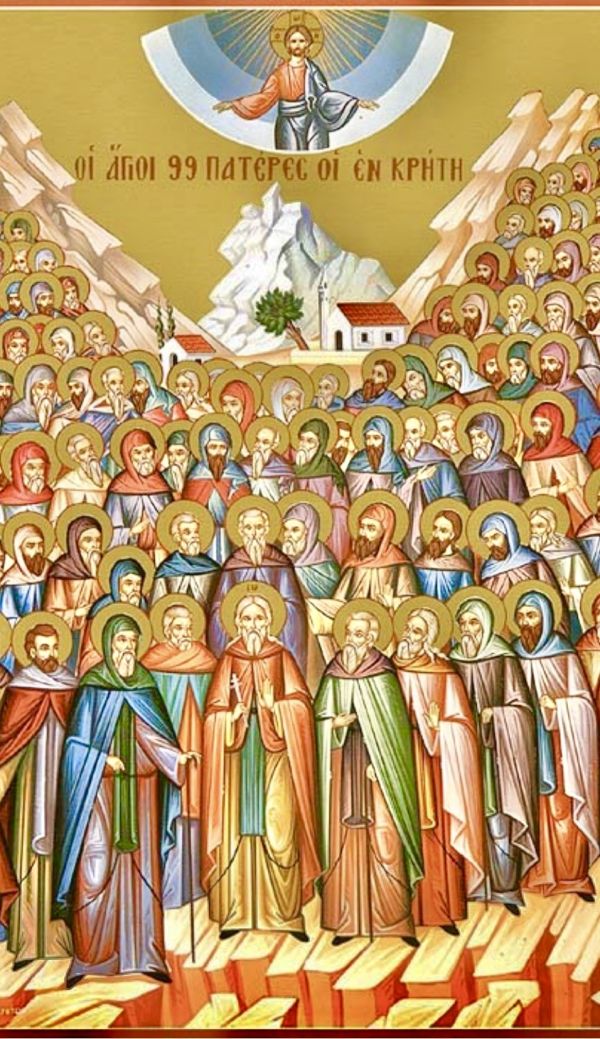All Saints, between religious sense and Faith
(Mt 5:1-12)
Embodying the spirit of the Beatitudes, we wonder what is the difference between common ‘religious feeling’ and ‘living by Faith’.
In ancient devotions the Saint is the composed man, perfect and detached [but predictable]; and the opposite of Saint is «sinner».
In the proposal of a full life in the Lord, the «holy» is a person of communicative understanding, and whoever lives for conviviality, creating it where there is not.
In the path of the sons the Saint is indeed the excellent man, but in his complete sense - full and dynamic, multifaceted; even eccentric. Not in a one-sided meaning.
In Christ, true man is a «detached» [‘saint’] from the common mentality, as faithful to himself, to his own Fire that does not become extinct - to the passions, to his unrepeatable uniqueness and Vocation.
And together, «separated» from external competitive criteria: of having, of power, of appearing. Self-destructive powers.
To the latter, it concretely replaces the fraternity of giving, of serving and of diminishing oneself [from the "role"]. Fruitful energies.
In this way, the «holy» lives the essential Beatitude of the persecuted (Mt 5:11-12; Lk 6:22-23) because he has the freedom to ‘descend’ to be in tune with his own essence; coexisting in his originality.
In terms of Faith, the Saint is therefore no longer a physically «separate», but «United» to Christ - and banished like Him, in the weak brothers.
In short, the Divine Plan is to compose a Family of small ones and shaky, not to carve out a group of strong and ‘better’ friends than the others.
The Appeal that the Word addresses is to undertake an itinerary; this is the point. And we have always been «those of the Way» and they who don’t pass beyond, do not look the other way [cf. Lk 10,31-33; FT, 56ff].
For the classical pagan mentality, woman and man are essentially ‘nature’, so their being in the world is conditioned, even determined by birth (lucky or not).
According to the Bible, woman and man are creatures, splendid and adequate in themselves for their mission, but pilgrims and lacking.
God is the One who «calls» them to complete themselves, recovering the different aspects.
Person’s holiness is therefore combined with many of dissatisfaction‘ states, border, and even of partial failure - but always thinking and feeling the reality.
For a New Alliance.
With Jesus, Perfection does not concern ‘thought’, nor respect for an abstract Code of Observance. Completion refers to a quality of Exodus and Relationship.
In Scripture the Saints know the problems, weaknesses, joys and sorrows of daily life, the search for their own identity-character, or deep inclination.
And the apostolate; the family, the education of children, work. Even the seduction force of evil.
Well, opposed to God are not ‘sins’, but «the» Sin [singular, theological term, not moralistic].
‘Sin’ is the inability to correspond to an indicative Call, which acts as a spring to complete us, to regenerate us as not-partial people.
This by harmonizing opposite sides - in being ourselves and being-With.
Here it is the Faith that «saves», at the point where we find ourselves - because it annihilates «the sin of the world» (Jn 1:29), that is, the disrespect and sense of guilt; the humiliation of unbridgeable distances.
In the Gospels, to no one Christ says «made yourself holy», but with Him, like Him and in Him - «be United», to meet unceasingly own deep states.
Recognizing them better, also thanks to the You and We: «coming to experience others as our “own flesh”» (FT n.84).
[All Saint’s Day, November 1st]












